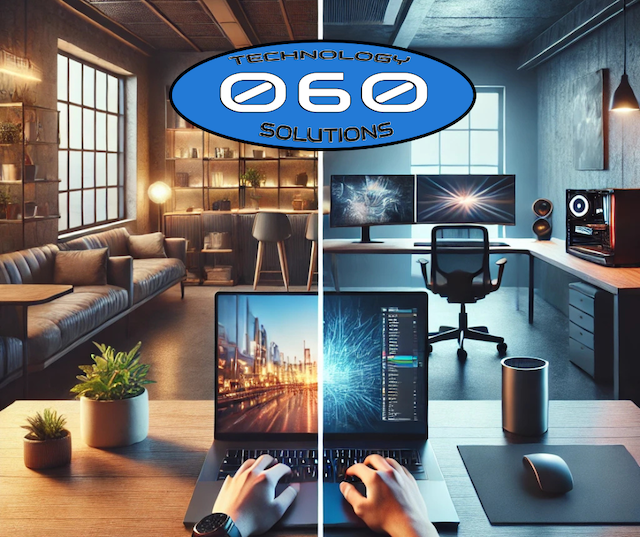TL;DR: Whether a laptop or desktop is better depends on how the device will be used. While laptops offer portability and convenience, desktops are typically preferred for performance and upgradability. Making the right decision requires evaluating factors such as cost, energy use, and hardware flexibility.
Source: https://www.cdw.com/content/cdw/en/articles/hardware/laptop-vs-desktop.html
Key Points:
- Portability is prioritized in laptops, making them ideal for users who need to work remotely or travel frequently. In contrast, desktops are stationary and designed for consistent workspaces.
- Desktops tend to offer superior performance, primarily because they can accommodate larger components and more efficient cooling systems.
- Hardware upgradability is significantly easier with desktops, whereas laptops often allow only limited upgrades, such as RAM or storage.
- Laptops generally consume less energy, contributing to lower electricity costs and increased mobility due to built-in batteries.
- Desktops are often more cost-effective in terms of performance per dollar, despite requiring more space and a consistent power supply.
- Decision-making should be guided by use-case scenarios, including whether mobility or performance is the primary concern.
Summary:
When deciding between a laptop and a desktop, it is important to understand the trade-offs involved. Each option has been designed with distinct priorities in mind, and the decision should be based on specific computing needs.
To begin with, laptops are engineered for portability. As noted in the article published by CDW, they combine all essential components — including the monitor, keyboard, and processing unit — into one compact form. This makes them ideal for students, business travelers, and remote workers. In addition to that, laptops consume less power and have batteries, which provide flexibility in environments where electricity is not always guaranteed.
However, despite the convenience they offer, laptops can fall short in terms of raw performance. Due to their compact size, high-performance parts are often scaled down, which can lead to thermal throttling during intensive tasks. Upgrading a laptop is typically limited to RAM and storage, meaning long-term performance enhancement is restricted. Therefore, users who engage in video editing, gaming, or 3D rendering may find laptops to be insufficient over time. If you’ve found your laptop performance lacking, you may want to explore professional computer repair and upgrade services for tailored solutions.
In contrast, desktops are designed with performance and longevity in mind. Their larger size allows for more powerful components, including advanced GPUs and CPUs, along with better airflow and cooling systems. These features make desktops more suited for professional workloads and gaming. The modular nature of desktops also ensures that users can upgrade individual components, which extends the system’s useful life and keeps it adaptable to future demands.
Another consideration is cost-efficiency. As highlighted in the CDW article, desktops generally offer more computing power for the same price. While laptops may have higher initial costs due to compact engineering, desktops often outperform them at a lower price point. However, it should be noted that desktops require a permanent setup space, as they are not built to be moved frequently. If you’re unsure which solution fits your workplace or home office needs, it might be helpful to consult a Managed IT Services provider who can assess and align your tech infrastructure to your specific goals.
Moreover, energy use is a factor that should not be overlooked. Since laptops operate on less power and feature power-saving modes, they can reduce electricity consumption, which is beneficial for both the environment and your utility bill. Desktops, by comparison, need to be continuously plugged in and tend to consume more electricity, particularly those with high-end specifications.
Ultimately, the decision between a laptop and a desktop should be driven by the primary function the device is expected to serve. If flexibility, portability, and power conservation are prioritized, a laptop may be the more appropriate option. On the other hand, if top-tier performance, customizability, and long-term value are preferred, a desktop is likely to be the better investment. Users must assess their daily computing tasks and future needs to make the most informed choice.
Contact us today to schedule a consultation.

HAVE MORE QUESTIONS? – WE WOULD LOVE TO TALK!





